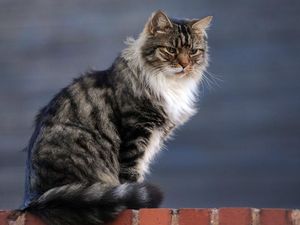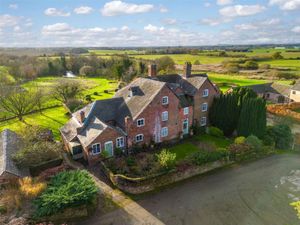Cat ban call for house buyers on Shropshire estate
Potential buyers of planned houses on a new Shropshire estate could be banned from owning cats – in a bid to protect water voles that live near the site.

Mattell Trustees Ltd has applied to Shropshire Council for outline permission to build up to 70 houses on land north of Edgeley Road, Whitchurch.
The site, which is home to a number of protected species, is bisected by Staggs Brook, a small tree-lined watercourse, which provides banks for burrows and a variety of food plants that support the voles.
An ecological report by the agent Berry’s says appropriate design and mitigation will be needed to ensure there will be no negative impacts on the voles and barn owls that live on the site, both of which are listed in the biodiversity action plan for Shropshire.
It suggests there should be a contract on house purchases which bans cats in order to protect the animals, which are fully protected under the Wildlife and Countryside Act 1981.
“The 10-metre buffer of dense/wet vegetation should also deter the cats from occurring within the suitable water vole habitat but if possible, the owning of cats by new residents should be deterred by an appropriate covenant on purchases,” the report said.
Monitored
“Dogs in the public open space beyond the water vole fence should be kept on leads with signs erected enforcing this and also information boards erected to further inform new residents on water vole presence, protection and management.
“The lighting plan proposed as part of the bat mitigation will also ensure that the water vole habitat remains unlit during and post-construction.”
It adds that the water vole population will continue to be monitored to ensure there is no decline.
The application has received three letters of objection so far, including one from a resident asking Shropshire Council how the cat ban could be enforced.
Shropshire Wildlife Trust is expected to make a comment on the proposal.
The charity campaigns to protect voles after a huge decline in the population as a result of habitat loss, pollution of waterways, industrialisation of agriculture, housing developments and the predation by American mink which were brought to the UK for fur farming.
Once a regular sight in ditches, steams and rivers across the UK, water voles are now absent across much of the country, according to the trust.




